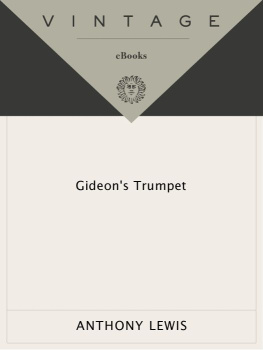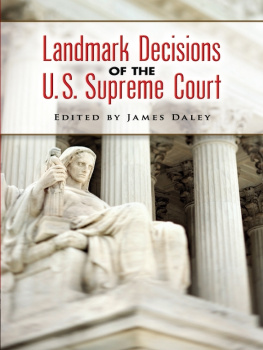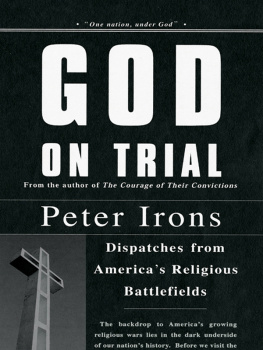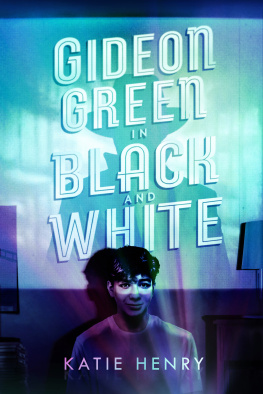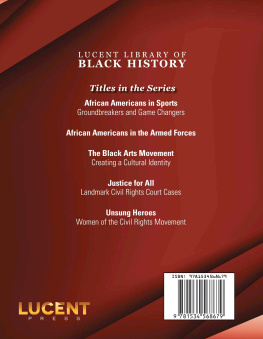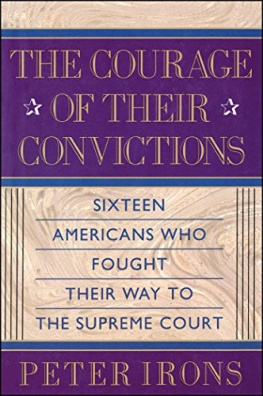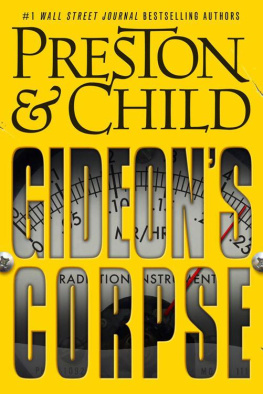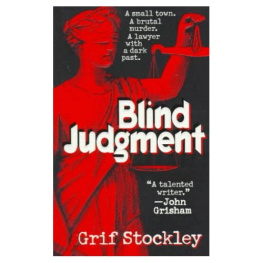Anthony Lewis - Gideon’s Trumpet
Here you can read online Anthony Lewis - Gideon’s Trumpet full text of the book (entire story) in english for free. Download pdf and epub, get meaning, cover and reviews about this ebook. City: New York, year: 2011, publisher: Knopf Doubleday, genre: Science / Business. Description of the work, (preface) as well as reviews are available. Best literature library LitArk.com created for fans of good reading and offers a wide selection of genres:
Romance novel
Science fiction
Adventure
Detective
Science
History
Home and family
Prose
Art
Politics
Computer
Non-fiction
Religion
Business
Children
Humor
Choose a favorite category and find really read worthwhile books. Enjoy immersion in the world of imagination, feel the emotions of the characters or learn something new for yourself, make an fascinating discovery.
- Book:Gideon’s Trumpet
- Author:
- Publisher:Knopf Doubleday
- Genre:
- Year:2011
- City:New York
- Rating:4 / 5
- Favourites:Add to favourites
- Your mark:
- 80
- 1
- 2
- 3
- 4
- 5
Gideon’s Trumpet: summary, description and annotation
We offer to read an annotation, description, summary or preface (depends on what the author of the book "Gideon’s Trumpet" wrote himself). If you haven't found the necessary information about the book — write in the comments, we will try to find it.
Gideon’s Trumpet — read online for free the complete book (whole text) full work
Below is the text of the book, divided by pages. System saving the place of the last page read, allows you to conveniently read the book "Gideon’s Trumpet" online for free, without having to search again every time where you left off. Put a bookmark, and you can go to the page where you finished reading at any time.
Font size:
Interval:
Bookmark:

V INTAGE B OOKS E DITION , M ARCH 1989
Copyright 1964 by Anthony Lewis
All rights reserved under International and Pan-American Copyright Conventions. Published in the United States by Random House, Inc., New York, and simultaneously in Canada by
Random House of Canada Limited, Toronto. Originally
published, in hardcover, by
Random House, Inc., in 1964.
Much of the material in this book first appeared in The
New Yorker, in somewhat different form.
Library of Congress Cataloging-in-Publication Data
Lewis, Anthony, 1927
Gideons trumpet.
Reprint. Originally published: New York: Random House, 1964.
Bibliography: p.
1. Gideon, Clarence EarlTrials, litigation, etc.
2. Wainwright, Louie L.Trials, litigation, etc.
3. Right to counselUnited States. 4. United States.
Supreme Court. I. Title.
KF228.G53L49 1989 345.73 056 88-40504
eISBN: 978-0-307-80528-7
v3.1
To my parents
But the Spirit of the Lord came upon Gideon, and he blew a trumpet.
JUDGES VI , 34.

I n the morning mail of January 8, 1962, the Supreme Court of the United States received a large envelope from Clarence Earl Gideon, prisoner No. 003826, Florida State Prison, P.O. Box 221, Raiford, Florida. Like all correspondence addressed to the Court generally rather than to any particular justice or Court employee, it went to a room at the top of the great marble steps so familiar to Washington tourists. There a secretary opened the envelope. As the return address had indicated, it was another petition by a prisoner without funds asking the Supreme Court to get him out of jailanother, in the secretarys eyes, because pleas from prisoners were so familiar a part of her work. She walked into the next room and put the envelope on the desk of an assistant clerk of the Supreme Court, Michael Rodak, Jr.
Mr. Rodak, among other duties, concerns himself with what the Supreme Court calls its Miscellaneous Docket. This is made up mostly of cases brought by persons who are too poor to have their court papers printed or to pay the usual fee of one hundred dollars for docketing a case in the Supreme Courtbringing it there. A federal statute permits persons to proceed in any federal court in forma pauperis, in the manner of a pauper, without following the usual forms or paying the regular costs. The only requirement in the statute is that the litigant make affidavit that he is unable to pay such costs or give security therefor.
The Supreme Courts own rules show special concern for in forma pauperis cases. Rule 53 allows an impoverished person to file just one copy of a petition, instead of the forty ordinarily required, and states that the Court will make due allowance for technical errors so long as there is substantial compliance. In practice, the men in the Clerks Officea half dozen career employees, all lawyers, who handle the Courts relations with the outside worldstretch even the rule of substantial compliance. Rule 53 also waives the general requirement that documents submitted to the Supreme Court be printed. It says that in forma pauperis applications should be typewritten whenever possible, but in fact handwritten papers are accepted.
Gideons were written in pencil. They were done in carefully formed printing, like a schoolboys, on lined sheets evidently provided by the Florida prison. Printed at the top of each sheet, under the heading Correspondence Regulations, was a set of rules (Only 2 letters each week written on one side only letters must be written in English ) and the warning: MAIL WILL NOT BE DELIVERED WHICH DOES NOT CONFORM TO THESE RULES . Gideons punctuation and spelling were full of surprises, but there was also a good deal of practiced, if archaic, legal jargon, such as Comes now the petitioner. It seemed likely to Rodak that Gideon had a copy of the Supreme Court Rules.
The first of the documents in the envelope was a two-page affair headed Motion for leave to proceed in forma pauperis and including the notarized affidavit that the statute requires. A quick check indicated to Rodak that this prisoner had substantially complied with the rules. He appeared, for example, to have met the requirement that criminal cases be brought to the Supreme Court within ninety days of the lower court decision. Gideon had applied to the Florida Supreme Court for a writ of habeas corpusan order freeing him on the ground that he was illegally imprisoned. He enclosed a copy of that application and of a brief order of the Florida court denying it. The Florida ruling against him, which he wanted the Supreme Court of the United States to review, was dated October 30, 1961, less than ninety days before.
There was very little in what he had sent to the Court to portray Clarence Earl Gideon the man. His age, his color, his criminal record if anynot even these basic facts appeared, much less any details for a more complete portrait. Because the case came from the South, ones assumption might have been that he was a Negro. He was not.
Gideon was a fifty-one-year-old white man who had been in and out of prisons much of his life. He had served time for four previous felonies, and he bore the physical marks of a destitute life: a wrinkled, prematurely aged face, a voice and hands that trembled, a frail body, white hair. He had never been a professional criminal or a man of violence; he just could not seem to settle down to work, and so he had made his way by gambling and occasional thefts. Those who had known him, even the men who had arrested him and those who were now his jailers, considered Gideon a perfectly harmless human being, rather likeable, but one tossed aside by life. Anyone meeting him for the first time would be likely to regard him as the most wretched of men.
And yet a flame still burned in Clarence Earl Gideon. He had not given up caring about life or freedom; he had not lost his sense of injustice. Right now he had a passionatesome thought almost irrationalfeeling of having been wronged by the State of Florida, and he had the determination to try to do something about it. Although the Clerks Office could not be expected to remember him, this was in fact his second petition to the Supreme Court. The first had been returned for failure to include a paupers affidavit, and the Clerks Office had enclosed a copy of the rules and a sample affidavit to help him do better next time. Gideon persevered.
Assistant Clerk Rodak, knowing and caring nothing for any of this, stamped Gideons papers and gave them a number890 Miscellaneous, meaning that the case was the 890th entered on the Miscellaneous Docket in the October Term, 1961. (Supreme Court terms, which usually run from October into June, are formally designated by the month in which they begin.) On a green file card a secretary typed the number and the title of the case: Clarence Earl Gideon, petitioner, versus H. G. Cochran, Jr., Director, Division of Corrections, State of Florida, respondent. Then the papers were put into a large red folder and tied with a string. (Red is the color for Miscellaneous cases; regular prepaid cases, on what is called the Appellate Docket, go into blue folders.) The Gideon folder was dispatched to the file room, one floor down, by an electric dumbwaiter.
Sometimes Rodak or his colleague in the Clerks Office, Edward Schade, looking over the confused and often unintelligible prisoners petitions that come before them, will spot one with an impressive legal claim. Their view has nothing whatever to do with the action the Supreme Court may take, since only the nine justices act for the Court and they do not discuss the merits of cases with the employees in the Clerks Office. Still, just in the office, it enlivens things to say once in a while: Heres one that Ill bet will be granted.
Font size:
Interval:
Bookmark:
Similar books «Gideon’s Trumpet»
Look at similar books to Gideon’s Trumpet. We have selected literature similar in name and meaning in the hope of providing readers with more options to find new, interesting, not yet read works.
Discussion, reviews of the book Gideon’s Trumpet and just readers' own opinions. Leave your comments, write what you think about the work, its meaning or the main characters. Specify what exactly you liked and what you didn't like, and why you think so.

